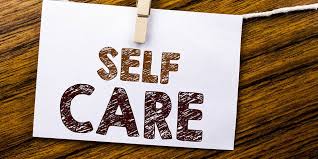Live Free and Joyfully Like a Child
When was the last time you laughed without restraint, danced without worrying who was watching, or marveled at the world with wide-eyed wonder? Children do these things effortlessly. They live with a sense of freedom and joy that many adults seem to lose along the way. But what if you could bring some of that childlike energy back into your life?
Living free and joyfully like a child isn’t about shirking responsibilities or ignoring the complexities of adulthood. It’s about reconnecting with the parts of you that know how to live fully in the moment, embrace curiosity, and find joy in the simple things.
What We Can Learn from Children
Children have a remarkable ability to:
– Live in the Moment: Kids aren’t consumed by past regrets or future worries. They immerse themselves completely in the now.
– Find Joy in Simplicity: A puddle on the ground or a bird in the sky can spark their delight.
– Be Unapologetically Themselves: They don’t second-guess their laughter, tears, or creativity.
– Take Risks Without Fear of Failure: They try, fall, and try again, seeing mistakes as part of the adventure.
– Dream Freely: Their imaginations are limitless, and they believe anything is possible.
As adults, we often lose touch with these qualities, weighed down by societal expectations, responsibilities, and self-imposed limits. But we can reclaim them.
How to Reclaim Your Inner Childlike Joy
1. Embrace Playfulness
Play isn’t just for kids—it’s for anyone who wants to reconnect with joy. Whether it’s trying a new hobby, playing a game, or simply being silly with friends, give yourself permission to have fun without purpose or productivity.
2. Rediscover Your Curiosity
Children are natural explorers, asking “why” a million times a day. Let yourself wonder about the world again. Read books, ask questions, or learn something new just for the joy of discovery.
3. Be Present
Kids don’t worry about yesterday or tomorrow—they’re fully absorbed in the moment. Practice mindfulness by paying attention to your senses, focusing on your breath, or simply savoring life as it happens.
4. Celebrate Small Joys
Notice the little things that bring you happiness: the warmth of the sun, the taste of your favorite meal, or the laughter of a loved one. Children find magic in the mundane; you can too.
5. Let Go of Self-Consciousness
Children don’t worry about how they look or whether they’re being judged. Take a cue from them and dance, sing, or express yourself without worrying about others’ opinions.
6. Take Risks
Remember when you were a kid and climbed that tall tree or jumped into the pool without a second thought? As adults, fear of failure often holds us back. Challenge yourself to take small risks, embrace mistakes, and see them as part of the journey.
7. Reconnect with Nature
Children often feel at home in nature, whether they’re climbing trees, chasing butterflies, or digging in the dirt. They’re barefoot, free, and interested. Spend time outdoors, letting the beauty and simplicity of the natural world inspire you.
8. Laugh Often
Children laugh hundreds of times a day, while adults average far fewer. Seek out humor, surround yourself with people who make you smile, and don’t be afraid to laugh at yourself.
Living Freely in a Structured World
Of course, adulthood comes with responsibilities—jobs, bills, and relationships. But living like a child doesn’t mean ignoring those things; it means approaching life with a different mindset. It’s about:
– Balancing Freedom with Responsibility: Doing what needs to be done while carving out time for joy.
– Prioritizing Play and Rest: Treating fun and downtime as essential, not optional.
– Choosing Joy Over Perfection: Letting go of the need to have everything figured out or under control.
A Final Thought
Living free and joyfully like a child doesn’t mean abandoning adulthood—it means embracing life with open arms and an open heart. It’s about rediscovering the wonder, curiosity, and freedom that make life rich and meaningful.
Ask yourself: “What would the child version of me love to do today?” Then go do it. Life is too short to take too seriously.
—
Need Help Reconnecting with Joy?
If you’re struggling to let go of stress and rediscover your inner child, therapy can help. I’m here to help you explore ways to cultivate freedom, joy, and playfulness in your life. Reach out today to start living more fully and joyfully!

